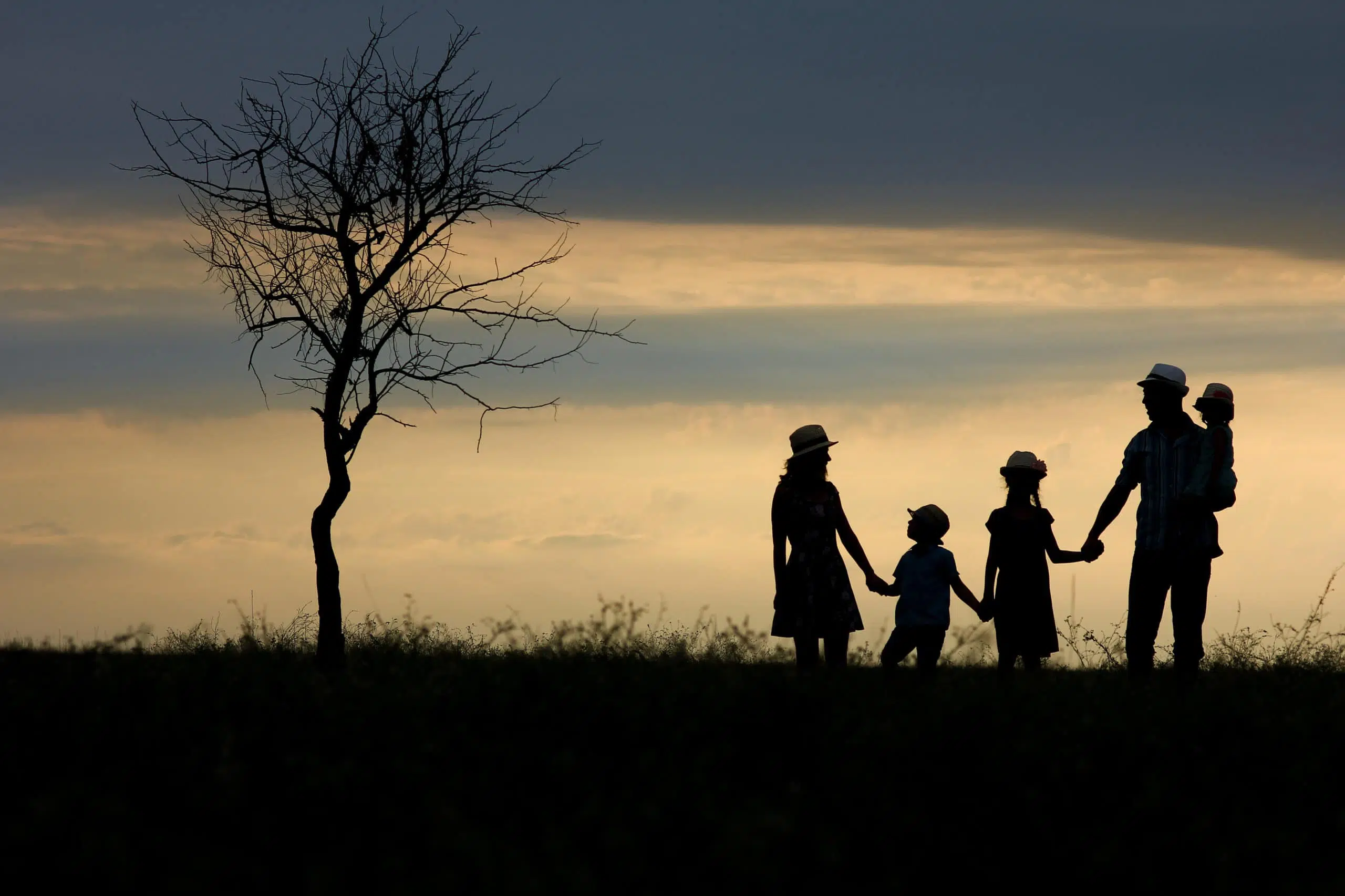Creatively Healing the Demographic Winter

What do you think of when you think of Italy? For many people what comes to mind is the food (pasta, pizza), the architecture (St. Peter’s, the Leaning Tower of Pisa), the natural beauty and the beaches, or the pervasive presence of thousands of years of history.
But there’s something else that also comes to mind: the image of the large, riotous, happy Italian family, with aunts and uncles, nieces and nephews galore, tons of grandchildren running underfoot, and a Nonna (grandmother) happily feeding the whole crowd of them while looking on proudly.
Unfortunately, however, all the data suggests that the Italian family of this kind is quickly becoming as much a relic of the past as any of those moldering villas perched on the hillsides of abandoned medieval towns that one sees driving across central Italy. In recent decades, the birth rate in Italy has simply collapsed, to the point that Italy now has one of the lowest birth rates in the world, at just 1.27 children born per woman on average: far below the replacement level of 2.1.
The radically shifting face of Italian demographics was put on display during the COVID pandemic, with Italy suffering inordinately from COVID due to its disproportionately aging population. In 2020, the number of deaths hugely outnumbered the number of births in the country, leading to a population reduction of nearly 400,000 people. And early numbers suggest that the pandemic has further accelerated the already rapidly dropping birth rate, with more marriages ending in divorce, and fewer couples welcoming new life.
‘Where is Our Treasure?’
To me it’s a heartbreaking state of affairs, especially for a nation that was once renowned as much for its robust family culture as for its artistic and religious culture. There is something truly tragic about the many Italians, who are old enough to remember a time of huge family reunions, sliding into old age and waiting in vain for their own one or two children to give them grandchildren.
It is a tragedy that our Holy Father, Pope Francis, seems to feel keenly as well. In remarks he made just last year to a meeting dedicated to addressing the demographic problem, he lamented that Italy now has the lowest birth rate in Europe – a continent that is in general becoming known not “because of its glorious history, but because of its advanced age.”
This collapse in births, the Pope said, is becoming “an increasingly harsh winter.”
In the face of this winter, the Holy Father urged those assembled at the Vatican to explore solutions to restore hope to Italy and other nations facing demographic collapse, and to make it easier for families to welcome life into the world. He also urged a fundamental reorientation of values, asking those present to question what it is that they value the most.
“Where is our treasure, the treasure of our society?” Pope Francis asked.
In the children or in finances? What attracts us, family or income? There must be the courage to choose what comes first, because that is where the heart is bound. The courage to choose life is creative, because it does not accumulate or multiply what already exists, but opens up to novelty, to surprises: every human life is a true novelty, which knows no before and after in history. We have all received this unrepeatable gift and the talents we have serve to pass on, from generation to generation, the first gift of God, the gift of life.
This is beautifully put.
What, indeed, is it that we value as a society? Do we appreciate the great gift that is a human life? Do we treasure the immeasurable greatness of a unique human soul? Do we see in the face of a newborn child a sign of hope, and of contradiction; a welcome sign that all of our worldly cares and concerns and ambitions are ultimately meaningless; a sign that what matters most in this world is not money, nor power, nor fame, nor productivity, but rather the love that one human being can have for another, and the love that every human being can have for his Maker, and – most wonderful of all – the infinite love that God has for every human being?
Or do we see in the face of a newborn child only a sign of challenges and difficulties ahead; of a threat to our freedom and autonomy; of a drain on our checkbook and our savings; of vacations lost and unwanted responsibilities shouldered; of resources consumed; of fear, uncertainty, and frustration?
We must, said Pope Francis in his remarks, reclaim the fundamental understanding of life as gift. “Every gift is received, and life is the first gift that each one of us received,” he said.
And a child is the greatest gift for everyone and comes first. To a child, to every child, is attached this word: first. Just as a child is awaited and loved before he or she is born, so we must put children first if we are to see the light again after the long winter. Instead, “a decline in the birthrate, which leads to an aging of the population, together with the relegation of the elderly to a sad and lonely existence, is a subtle way of stating that it is all about us, that our individual concerns are the only thing that matters” (Encyclical Letter Fratelli tutti, no. 19). We have forgotten the primacy of gift – the primacy of gift! – the source code of common living.
Amazingly – the Holy Father noted – this loss of the sense of gift has happened above all “in the more affluent, more consumerist societies.” Wherever there is more wealth and comfort, there, it seems, “is often more indifference and less solidarity, more closure and less generosity.”
Yes, it is true that we live in a world of many uncertainties. And yet, why is it that it is in the wealthiest nations, where abject poverty – the kind that leads to starvation and death – has been nearly eradicated, that young people are proactively choosing never to bring new life into the world? That is the reality revealed by a growing number of polls, such as this Pew Research poll from last November, which found that a full 44% of non-parents between the ages of 18-49 say that it is not likely that they will ever have children. Only 26% of those polled in that age group said that it is “very likely” that they will have children.
Instead, many young people are turning their attention to pets, which are being consciously embraced as a replacement for children. A popular bumper sticker and t-shirt design declares to the world, “my child has paws.” A poll released just a few weeks ago found that as many as seven in ten Gen Z adults (the generation born after Millennials) would rather adopt a pet than have children.
Generational ‘Sustainability’
In a clever twist, the Holy Father urged that our understanding of the word “sustainability” be expanded, to take into account “generational sustainability.”
The term sustainability is often used by anti-human population controllers to urge massive reductions in the human birth rate – often using brutal and coercive measures – in order to save the planet. However, Pope Francis emphasized that the health of human civilization depends upon a healthy birth rate. Pointing to the periods of reconstruction after the world wars, the Pope noted that “there was no restart without an explosion of births, without the ability to instill confidence and hope in the younger generations.”
Instead, however, our schools, the entertainment industry, and our sports heroes are inculcating in the young a superficial, anti-child understanding of the meaning of human life, noted Pope Francis. The emphasis is placed squarely on appearances. True maturity, however, comes when the young develop “the courage to pursue big dreams, to sacrifice themselves for others, to do good to the world in which we live.” In our society, however, children are, at best “a distraction” that hinders one’s personal aspirations.
In the face of the reality of the greying of society, what is needed are politicians who are committed to creatively exploring policies that support families, in particular by promoting social solidarity. “[W]e cannot remain in the realm of the emergency and the temporary,” said the Holy Father, “we need to give stability to family support structures and to encourage birth. We need a policy, an economy, information, and culture that courageously promote birth.”
This can include offering economic incentives to couples who have children or taking steps to ensure economic security and access to housing. On this score we can look to Hungary, which has made concerted efforts in recent years to incentivize procreation. In 2011, the Hungarian fertility rate was 1.23 – one of the lowest in Europe. It has since climbed to 1.55 – a 26% increase. That is still troublingly far from the replacement rate, but Hungary also marks a rare case in which an aging country has begun to turn the ship around, and climb back towards a healthy fertility rate.
Restoring Courage to Our Culture
However, before closing, I would also add something important to the Holy Father’s remarks. It is true that we need politicians and policies that are committed to cultivating the social and political conditions that encourage married couples to have children. We need economic health and stability, and social solidarity. But this is not enough. Not nearly enough.
More than anything, we desperately need a spiritual re–conversion to the rich, joyous, hope-filled Christianity that allowed our ancestors to face the prospect of high child mortality rates, high maternal mortality rates, and far less wealth and comfort than we now have, and yet choose to bring new life into the world anyway. Because, at the end of the day, procreation is an act of faith and of hope.
To have a child expresses a faith that human life is fundamentally a good thing, because human beings are made in the image and likeness of God. The Christian story tells of a God who loves His creatures so much, that He became one of them, taking on the form of a human person.
For by His incarnation the Son of God has united Himself in some fashion with every man. He worked with human hands, He thought with a human mind, acted by human choice and loved with a human heart. Born of the Virgin Mary, He has truly been made one of us, like us in all things except sin. (Gaudium et Spes, no. 22)
So great is the nobility of the human person, that God Himself chose to take on our flesh, and live among us! And Christ showed us that even a life marred by the worst imaginable suffering can nevertheless be a great life, if that suffering is a manifestation of the greatness of one’s love.
And to have a child is an expression of hope – hope that even though this fallen world is full of pain and uncertainty, life is yet worth living, because in the end every twist and turn of history works towards the glorious moment when Christ returns again, and all is made new, and all is restored in Him. The children we welcome into the world will, if we stay faithful and trust in the Lord, one day join us in eternity, praising and glorifying the Lord alongside us. The story of our lives, and the lives of our children, will participate in the glorious story of Christ’s resurrection, His conquering of death.
It is this story – the greatest story ever told, and the truest story ever told – that fills the human heart with the joy and hope that are needed to take the leap of faith to welcome the gift of human life. Until our culture rediscovers the joy of the Gospel, no number of clever social policies will be enough to convince young couples to have the courage to have children. What we are facing is not an economic or a social problem. What we are facing is a heart problem, a spiritual problem. And until we get to the root of our demographic collapse, everything else is a case of fiddling while Rome burns. Our society is weary, decadent, decrepit. In order to recapture its youth, it needs to recapture its heart: the heart of the Gospel. Christ’s heart.




Sorry but hope and spiritual restoration aren’t going to pay the bills. Diapers and baby bottles, childcare, and healthcare are too expensive for young people who are working low-paid and abusive jobs, and have not the time or patience to spend on childrearing. God’s children don’t deserve to live in poverty.
Wonderful! Thank you and God mightily bless you, Father!
Agree.